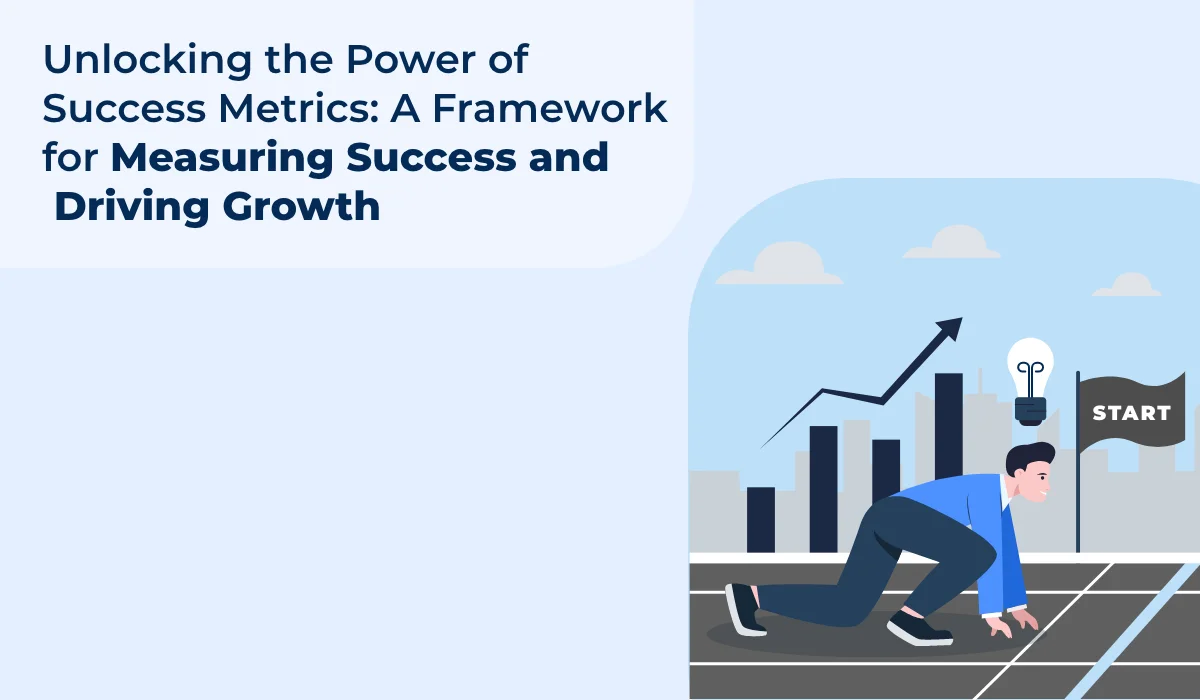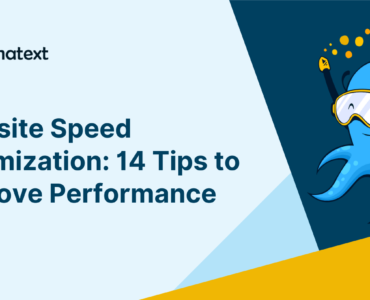Measuring ROI in SEO campaigns effectively is crucial for determining the success of your efforts. It involves tracking key performance indicators and analyzing the impact of your SEO strategies on your business’s bottom line.
By implementing robust tracking tools and establishing clear metrics, you can accurately gauge the return on investment from your SEO initiatives. Effective measurement of ROI in SEO campaigns is essential for businesses to understand the impact of their marketing efforts.
It allows you to evaluate the success of your SEO strategies and make informed decisions about future investments. This article will discuss the importance of measuring ROI in SEO, best practices for tracking and analyzing performance, and how to optimize your SEO campaigns for maximum impact. Understanding the significance of ROI in SEO campaigns will enable you to make data-driven decisions and achieve tangible results for your business.

Credit: growthnatives.com
Why Measuring Roi In Seo Campaigns Is Crucial
Measuring ROI in SEO campaigns is crucial for any business aiming to thrive in the competitive digital landscape. It provides essential insights into the effectiveness of your SEO strategies, helping you make informed decisions for optimizing your campaigns.
The Importance Of Tracking Roi In Seo
Tracking ROI in SEO is crucial as it allows businesses to assess the impact of their SEO efforts on their bottom line. By measuring the returns generated from SEO activities, businesses can determine the effectiveness of their investments and make data-driven decisions to improve their strategies.
How Measuring Roi Helps In Optimization
Measuring ROI in SEO is instrumental in optimizing campaigns by identifying which tactics are delivering the best results. It enables businesses to allocate resources strategically, ensuring that every aspect of the SEO campaign contributes to achieving the best possible outcomes. With precise ROI data, businesses can fine-tune their SEO strategies, eliminate underperforming efforts, and focus on activities that generate the most value.
Determining The Key Metrics For Roi Measurement
When it comes to measuring the success and effectiveness of SEO campaigns, determining the key metrics for ROI measurement is essential. Understanding the relevant metrics for SEO campaigns and setting up goals and KPIs are crucial for evaluating the return on investment from your SEO efforts.
Identifying The Relevant Metrics For Seo Campaigns
Before delving into the ROI measurement for SEO campaigns, it’s imperative to identify the relevant metrics that align with your business objectives. A meticulous analysis of key performance indicators (KPIs) such as organic traffic, keyword rankings, conversion rates, and backlink quality plays a pivotal role in monitoring the impact of your SEO initiatives. The ability to identify and prioritize the most impactful metrics will enable you to focus on areas that drive tangible results.
Setting Up Goals And Kpis
In order to effectively measure the ROI of your SEO campaigns, setting up clear goals and KPIs is fundamental. Establishing specific, measurable, achievable, relevant, and time-bound (SMART) objectives facilitates a structured approach towards ROI measurement. By defining KPIs that directly correlate with business outcomes, you can accurately gauge the success of your SEO endeavors and make data-driven decisions to optimize future strategies.
Implementing Effective Tracking And Analytics Tools
When it comes to measuring the ROI of an SEO campaign, implementing effective tracking and analytics tools is crucial. Without proper tracking, it becomes difficult to assess the success of your efforts. This section will delve into the importance of choosing the right SEO analytics tools and setting up tracking codes and conversion tracking.
Choosing The Right Seo Analytics Tools
In order to measure the ROI of your SEO campaigns effectively, it is imperative to choose the right SEO analytics tools. The market is flooded with various options, each offering their own set of features and functionalities. To ensure you make the best choice, consider the following factors:
- The type of data you need: Identify the specific metrics that matter most to your business. Whether it be keyword rankings, organic traffic, backlink profile, or conversion rates, make sure the tool you choose provides the necessary data.
- Usability and interface: Opt for a tool that is user-friendly and provides an intuitive interface. This will make it easier for you to navigate and analyze the data.
- Integration capabilities: Check if the tool integrates seamlessly with other platforms or tools you use, such as Google Analytics or CMS systems.
- Budget: Consider the cost of the tool and assess its value against the features it offers. It’s important to strike a balance between your budget and the tool’s capabilities.
Setting Up Tracking Codes And Conversion Tracking
Once you have selected the right SEO analytics tool, the next step is to set up tracking codes and conversion tracking. These elements will enable you to measure the success of your SEO campaign by tracking website activity and conversions. Here are a few key steps to follow when setting up tracking codes:
- Analyze your website structure: Before implementing tracking codes, thoroughly analyze your website structure to determine the best placement for the codes.
- Integrate with Google Analytics: Integrate your SEO analytics tool with Google Analytics, as this powerful platform provides valuable insights and data.
- Set up goals and conversions: Define your goals and set up conversion tracking in your SEO analytics tool. This will allow you to track specific actions taken by visitors on your website that contribute to your business objectives.
- Implement tracking codes: Install the tracking codes provided by your chosen SEO analytics tool into the appropriate sections of your website. This will ensure accurate tracking of website metrics.
By implementing effective tracking and analytics tools, you will have a solid foundation for measuring the ROI of your SEO campaigns. Remember to regularly monitor and analyze the data gathered to optimize your strategy and drive better results.

Credit: www.facebook.com
Analyzing And Interpreting Seo Campaign Data
Measuring the ROI of SEO campaigns is essential to determining the success and impact of your efforts. However, collecting data is only the first step. The real value lies in analyzing and interpreting that data to gain actionable insights. In this section, we will explore the different data points to consider and how to measure the impact of SEO on overall business performance.
Understanding The Different Data Points
When it comes to analyzing SEO campaign data, it’s important to consider various data points to get a comprehensive view of your performance. These data points can include:
- Keyword rankings: Tracking the positions of your target keywords helps you understand your website’s visibility and potential traffic.
- Organic traffic: Monitoring the influx of organic traffic allows you to analyze the effectiveness of your SEO strategies in attracting visitors to your site.
- Bounce rate: A high bounce rate indicates that visitors are not engaging with your content, pointing to potential issues with your SEO optimization or website usability.
- Conversion rates: Tracking conversion rates helps you assess the effectiveness of your SEO efforts in driving desired actions, such as purchases or sign-ups.
- Backlink profile: Analyzing your backlink profile helps you understand the quality and authority of websites linking to yours, an essential factor in SEO success.
Analyzing The Impact Of Seo On Overall Business Performance
While tracking SEO metrics is crucial, it’s equally important to understand how SEO impacts your overall business performance. Here are some techniques to consider:
- Integrated data analysis: Combining SEO data with other business metrics, such as revenue and customer acquisition, allows you to measure the influence of SEO on your bottom line.
- Attribution modeling: Attribution modeling lets you attribute conversions and revenue to specific marketing channels, including SEO. This helps you determine how much of your overall success can be directly attributed to SEO efforts.
- Competitor analysis: Examining your competitors’ SEO strategies can provide valuable insights into what is and isn’t working in your industry. Analyzing their performance can help refine your own tactics and gain a competitive edge.
By analyzing and interpreting SEO campaign data, you can identify strengths, weaknesses, and opportunities for improvement. This process empowers you to make data-driven decisions and optimize your SEO strategies to achieve the best possible results.
Optimizing Seo Strategies For Maximum Roi
In today’s digital landscape, businesses are constantly striving to achieve maximum return on investment (ROI) from their SEO campaigns. However, with the ever-changing algorithms and competitive nature of search engine optimization, it can often be tricky to measure the effectiveness of these strategies.
Identifying Areas For Improvement Based On Data
One of the most crucial steps in optimizing SEO strategies for maximum ROI is understanding where improvements can be made. By analyzing data, businesses can gain valuable insights into which areas of their campaigns are underperforming and need attention.
There are several key performance indicators (KPIs) that can be measured to determine areas for improvement. These include:
- Organic search traffic: Examining the amount of traffic coming to your website from search engines can indicate how effective your SEO efforts are.
- Keyword rankings: Monitoring the positions of your target keywords in search engine results can provide insights into how well your website is optimized for those specific terms.
- Bounce rate: Understanding the percentage of visitors who navigate away from your website after viewing only one page can highlight potential issues with user experience or content relevancy.
- Conversion rate: Tracking the rate at which website visitors complete desired actions, such as making a purchase or filling out a contact form, can indicate the overall effectiveness of your SEO campaigns.
| KPI | Measurement |
|---|---|
| Organic search traffic | Google Analytics |
| Keyword rankings | SEO tools like SEMrush or Ahrefs |
| Bounce rate | Google Analytics |
| Conversion rate | Google Analytics or CRM software |
Optimizing Keywords, Content, And User Experience
Once areas for improvement have been identified, businesses should focus on optimizing their keywords, content, and user experience to maximize ROI. Ensuring that these aspects are well-optimized can lead to higher search engine rankings, increased organic traffic, and ultimately, more conversions.
Here are some strategies to optimize these key areas:
- Keyword optimization: Research and identify relevant keywords that align with your target audience’s search intent. Implement them strategically in your website’s meta tags, headers, content, and URLs.
- Content optimization: Create high-quality, informative, and engaging content that fulfills searchers’ needs. Ensure proper formatting, readability, and structure to enhance the user experience.
- User experience optimization: Improve website loading speed, mobile responsiveness, and ease of navigation. Enhance user engagement through intuitive design, clear CTAs, and personalized experiences.
By optimizing these key areas, businesses can increase their chances of ranking higher in search engine results, attracting more targeted traffic, and converting visitors into loyal customers. Continuous monitoring and adjustment based on data analysis will help ensure maximum ROI from SEO campaigns.

Credit: www.facebook.com
Frequently Asked Questions For Measuring Roi In Seo Campaigns Effectively
How Do You Measure Roi For Seo?
To measure the ROI for SEO, track key metrics such as organic traffic, keyword rankings, conversion rates, and revenue generated from organic search. Analyze data regularly, use tools like Google Analytics, and calculate the value of organic traffic compared to the investment made in SEO efforts.
How Do You Measure The Success Rate Of Seo Campaigns?
The success rate of SEO campaigns is measured through key performance indicators (KPIs) such as organic traffic, rankings, conversion rates, and ROI. Analytics tools like Google Analytics and Search Console are used to track these metrics and assess the effectiveness of the campaign.
What Is The Best Roi In Seo?
The best ROI in SEO can vary based on individual goals and strategies. However, focusing on long-tail keywords, quality content creation, and effective link building are often key components for a high return on investment in SEO. Regular performance analysis and adjustments are essential for maximizing ROI.
How Do You Forecast Seo Roi?
To forecast SEO ROI, analyze keyword search volume and competition, estimate click-through rates and conversion rates, calculate average order values, and project traffic growth. Use tools like Google Keyword Planner and Google Analytics for data-driven insights. Regularly monitor and adjust your strategy to optimize results.
Conclusion
To effectively measure the ROI in SEO campaigns, it is crucial to have a clear understanding of the goals and objectives from the start. By setting specific metrics and tracking them accurately, businesses can determine the success of their SEO efforts.
Consistent monitoring and analysis of data, coupled with optimization strategies, allow for continuous improvement in driving organic traffic and conversions. This holistic approach ensures a higher return on investment and fosters sustainable growth in the ever-evolving digital landscape.
Related Posts
Recent Posts
- Optimizing Images for SEO and Page Speed: Boost Your Website’s Performance!
- Seo for Local Businesses Step-By-Step Guide: Boost Your Online Success Today!
- The Role of Content Clusters in Modern SEO: Boost Your Rankings
- Supercharge Your SEO Success with High-Quality Backlinks
- Impact of User Experience on SEO Rankings: Boost Your Website’s Performance
Recent Comments
Archives
Categories
Categories
- Blog(40)
- Local SEO(1)
- On-Page SEO(1)
- SEO(7)
- SEO Optimization(1)





